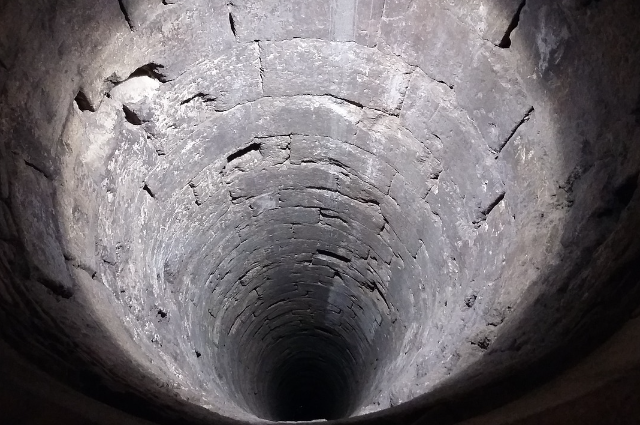
Image by mh-grafik from Pixabay
Hell, according to the dictionary, is a place regarded in various religions as a realm of evil and suffering. It is considered a dark world where demons live. Religious texts describe it as a place where a person goes after death if they have committed sins or wickedness during their life. As punishment for their bad deeds, they are tortured there for a very long period of time. But does hell really exist?
The ways of punishment in hell are depicted as heinous. Some theories suggest that these stories are made up to instill fear and deter people from immoral behaviour. Others propose that these are rumours spread by religious cults to manipulate people for their own gain. Both theories could be true from their own perspectives, but what is the real truth?
The existence of Hell as a physical place is not something that can be scientifically proven or disproven. Science, which relies on empirical evidence and measurable phenomena, has not found any evidence to support the existence of Hell as described in various religious texts. However, there have been a few notable instances where claims have been made about evidence of Hell or voices from the depths of the Earth. These claims are generally regarded with skepticism by the scientific community.
The "Well to Hell" Hoax
One of the most famous stories related to this topic is the "Well to Hell" hoax. According to this urban legend, Soviet scientists in Siberia drilled a deep hole in the Earth's crust, reaching a depth of about 12 kilometres (7.5 miles). They claimed to have lowered a microphone into the hole and recorded sounds described as the screams of damned souls in Hell. This story has been widely debunked and is considered a fabrication. The supposed recordings were never verified, and the details of the story are inconsistent and often contradictory.
Aftereffects on the Scientists
When the sounds were recorded, those at the site became too scared to continue the job. Many quit, and those who stayed witnessed another strange event: bats emerging from the well with a message, “The devil is out.” Those who witnessed it were frightened to their core and required immediate medical attention, similar to treatment for shock.
Although this theory raises many questions, it should not be dismissed without consideration. The well was closed in 2005 due to a lack of funding and the necessary equipment to continue drilling at such high temperatures and pressures, leaving many questions unanswered. Some stories also suggest that the project was discontinued out of fear of awakening something too evil to handle.
Deep Earth Sounds and Geophysics
There are real scientific endeavors that involve drilling deep into the Earth, such as the Kola Superdeep Borehole in Russia, which reached a depth of about 12.3 kilometres (7.6 miles). While scientists have recorded various geological sounds from such depths, these sounds are entirely natural and can be explained by geological processes. They do not constitute any evidence of Hell or supernatural phenomena.
Paranormal Research and Anecdotal Evidence
Numerous ghost stories are cited frequently, and many series and movies (like "The Conjuring" in 2013 and "Open Water" in 2003) claim to be based on real events and encounters with ghosts. Stories of people encountering the dead were popular during the Vietnam War.
Some paranormal researchers and enthusiasts claim to have evidence of ghosts, demons, or other supernatural entities, sometimes associating these with Hell or the afterlife. This includes recordings of "EVP" (Electronic Voice Phenomena), which are sounds found on electronic recordings that some interpret as spirit voices. However, these claims are not scientifically validated and often fall under pseudoscience. Sceptics argue that such recordings can often be attributed to audio pareidolia (the tendency to perceive meaningful patterns in random sounds), hoaxes, or environmental noises.
Psychological and Sociological Perspectives
From a psychological and sociological perspective, belief in Hell and related phenomena can be powerful and influential, affecting behaviour and culture. The fear of Hell or the hope of avoiding it can be deeply rooted in individuals' psyches, especially in those raised in religious environments that emphasize these beliefs.
Conclusion
To date, there is no scientific evidence supporting the existence of Hell as a physical place with cruel voices or tormented souls. Stories and claims about such evidence typically fall into the categories of urban legends, hoaxes, or pseudoscience. Scientific research into the deep Earth focuses on geological and environmental phenomena, which can sometimes produce mysterious or unexplained sounds, but these have natural explanations.
At the same time, all these stories raise a lot of questions. If Hell is just a hoax, how has it become such a popular concept? Hell is not something limited to one language or one religion. Every language has a word for Hell, and every religion has a similar description of Hell. If all of this is false, how come it has not been widely questioned? If it is a false rumour, how did it travel all around the world?
To this day, the concept of Hell remains within the domains of religious belief, mythology, and personal interpretation. But can we say the same for the future?
. . .
Related Pages to Visit:
- The real story of Well to hell - https://eosty.medium.com
- People's religions differ on hell - https://scholar.lib.vt.edu
- Paranomia incidents during Vietnam War - www.military.com
